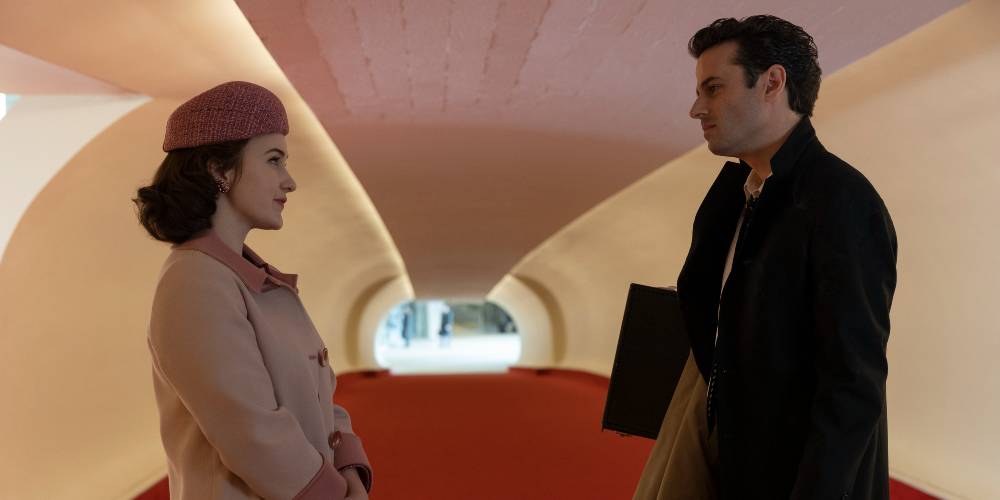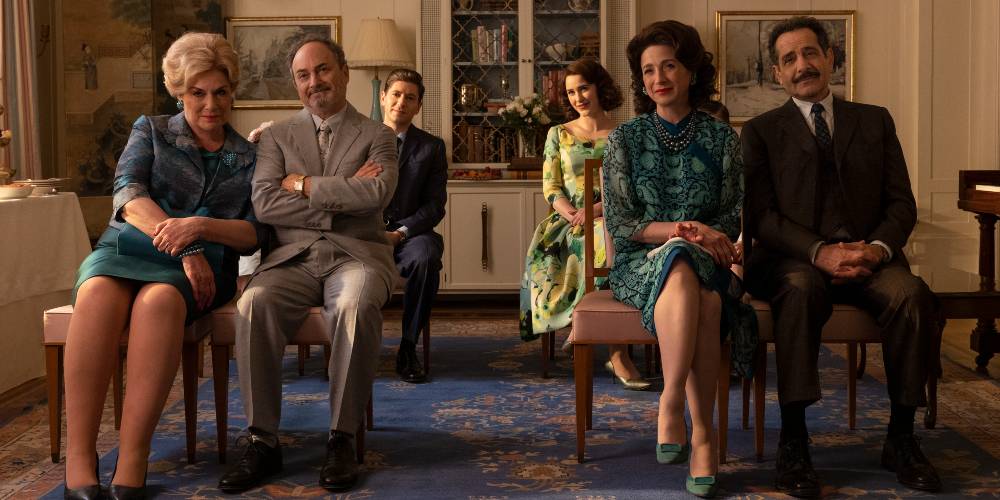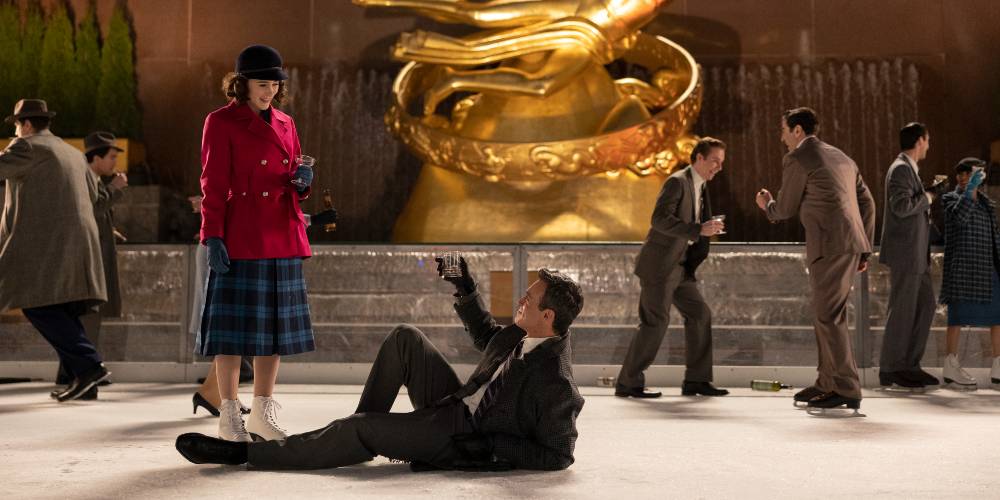Read also:
How to Watch FX Live Without CableHow To Watch AMC Without CableHow to Watch ABC Without CableHow to Watch Paramount Network Without CableThe colorful banter and big laughs abound, and so does a deeper story about the characters’ challenges and what they mean to one another.
When a show enters its final season, it has an opportunity to decide what it really wants to say. And what The Marvelous Mrs. Maisel wants to say is this: For all her tenacity, Susie (Alex Borstein) genuinely cares about the people in her orbit, especially her first client. For all that he’s been a presumptuous prick, Joel (Michael Zegen) has become a better man. For all his professorial condescension, Abe (Tony Shalhoub) realizes how wrong he’s been about so many things. And for all her immense talent and unflappable air, Midge (Rachel Brosnahan) must and will scratch and claw to get the chances denied her because of her gender and prove that this isn’t just a phase; it’s who she was meant to be.
You could do much worse for a final bow. Through the eight episodes released to critics, The Marvelous Mrs. Maisel is a hilarious, visually-arresting, and oft-profound farewell from the seminal series. Oddly enough, but for some choice hops across the timeline, you might not even know this was the show’s last hurrah.
That’s to Mrs. Maisel’s credit. Amid its broader effort to summarize the series, season 5 tells a coherent story in the “present” of 1961. That story sees Midge breaking new ground in the world of television, albeit behind the scenes. The final season comes with a new, humbler Midge, who’s been chastened by her manager’s advice and the admonitions of Lenny Bruce (Luke Kirby). She’s more apt to trust Susie’s process, eventually finding herself in the writers’ room of The Gordon Ford Show, aiming to make it on the air.

The late-night talk show becomes a vibrant new ecosystem for the series to explore. Midge’s efforts to fit in with an all-male cadre of comedy writers, avoid the power struggle among the production staff, and navigate relations with Gordon Ford (Reid Scott) himself, provide for plenty of conflicts and endearing character moments. But the setting also allows creator Amy Sherman-Palladino and company to explore the dynamics and challenges that come with blazing such trails in the 1960s. And it enables Sherman-Palladino to exhume the likely autobiographical challenges of being one of the few women on the creative team of a television show.
On a practical level, the quest to stand in front of the camera rather than stay behind it gives Midge her white whale for the season. Her goal is a threshold that could either point the eponymous Mrs. Maisel toward greater success or prove that the hurdles in front of her, both fair and patently unjust, are too much to overcome. Alongside Susie growing her business, Rose (Marin Hinkle) fighting the Match-Making Mafia, Abe’s continuing misadventures at The Village Voice, and Joel’s troubles in both business and romance, Midge’s noble crusade provides the backbone of the show’s final season.
But as much commendable focus as there is on the present, in a way that makes this feel like a regular, full-fledged storytelling cycle and not some mere victory lap, Mrs. Maisel’s final season also takes time to answer the big questions about the future. Does Midge make it? Can Susie build a successful business? Where does their connection with family and friends lead them and leave them in the years to come?
This last batch of episodes certainly doesn’t skimp on the goings-on in the here and now. But with trademark style, it also finds creative ways to give viewers a glimpse of events down the line that help answer some of those bigger questions about who the main characters are deep down and how they may have changed since the series began.
Those questions include how Ethan and Esther (Midge and Joel’s children) feel about their mom. In truth, the two moppets have been little more than props to this point. So it’s a little surprising, but also gratifying, to see Mrs. Maisel use this last bit of real estate to consider how the two might turn out after being surrounded by all of this mishegoss and what their relationship with their parents might look like in its wake.

Along the way, the show delivers all of the ping-ponging banter and sparkling wit it’s known for. With a concept that becomes one of the season’s lodestones, whatever crap Midge may have to deal with, by God, she’s still funny, and so is the series that bears her name. Gags about Abe and Rose’s amorous gestures, Susie’s “by any means necessary” methods to close a deal, and little Ethan’s assignment to “the happy table” are all great fodder for laughs.
And that’s not all the spritely fun season 5 has in store! Mrs. Maisel retains its musical bent, with influences that range from classic Broadway show tunes to a delightful Muppet-y needle drop. And without giving anything away, Midge herself has her off-off-off-Broadway moment, which could very well be the most shining comic set piece of the whole series. And that’s saying something.
Yet, amid all the fun rests an earnest heart. Susie confronts a part of her life she’d rather stayed in the past. Joel sticks his neck out when he doesn’t have to. Rose strives to have her business taken seriously. Abe confronts the assumptions by which he’s led his life and is shaken by the act of introspection. Midge herself suffers under the biases of people who write her off because of what she is and isn’t, and she reaches one of her lowest points in the process. Beneath the pastel and patter rests a committed, heartrending look at who these characters have become and what their journeys have meant as we approach their ultimate destinations.

And yet, what unites all of that is the quiet undercurrent that has run through the show since the beginning: an acknowledgment of the challenges women have dealt with since time immemorial and the hard-won, meaningful victories that trailblazers like Midge and Susie gain along the way.
In the end, the show’s final season is a story about what Midge and Susie mean to one another. But it’s also about the hurdles they’ve overcome that men in their positions don’t have to give a second thought to and the lengths they’ve gone to leap over them. Abe and Joel each have epiphanies and moments of nobility that center on truly seeing and appreciating what the women in their life, who they’d otherwise tried to fit into neat little boxes, are capable of when no longer penned in. And the trials and travails of everyone from Rose down to Esther reveal how these challenges don’t go away and how there is, nonetheless, hope born anew across each generation.
The creative team behind The Marvelous Mrs. Maisel still has plenty to say in its final season. And this last set of episodes seems brilliantly constructed to leave the audience fully understanding the sacred places these people occupy in one another’s lives. But the thought it seems to want to leave us with is simple but transcendent: the mutual support, nudging, ribbing, and cajoling that made it possible for women like Midge and Susie to fight for their place in a world not built for them to succeed, and what it means for them to remake it, just a little bit, in the only way they know how. Tits up.
The Marvelous Mrs. Maisel’s fifth and final season launches on April 14th on Amazon Prime.